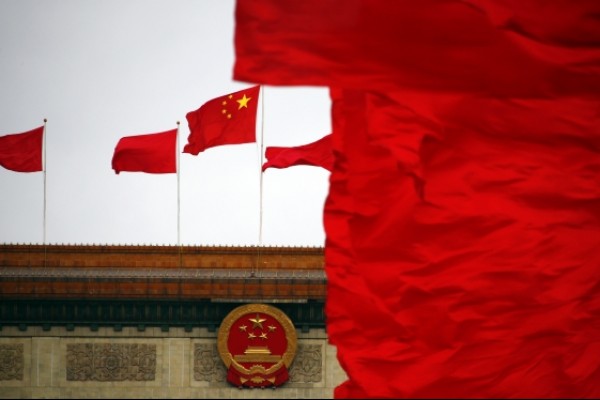| China sets 2021 GDP growth target of 6% | |

| Author: SEEbiz / CNBC |
| 5th March 2021 |
| BEIJING — China has set growth target of over 6% for 2021, Chinese Premier Li Keqiang announced Friday at an annual parliamentary meeting — the country’s most important political event of the year. |
|
China reported GDP growth of 2.3% last year — the only major economy to expand amid the coronavirus pandemic. Li announced the growth target in a government work report delivered at the opening ceremony of the National People’s Congress. The meeting is part of Beijing’s “Two Sessions” annual parliamentary gathering which sets economic and political national priorities for 2021. The premier struck an overall positive tone on China’s economic recovery from the pandemic, while noting areas of weakness such as “impediments” to consumer spending, tough conditions for small businesses and mounting pressure in maintaining stable employment. For 2021, Li said China aimed for an urban unemployment rate of around 5.5% and targeted the creation of more than 11 million new urban jobs, the same as in 2019 and up from 9 million last year. China will also aim for an increase of around 3% in the consumer price index, a measure of inflation, Li said. Strengthening science and technology development was among major tasks for the year, Li said. He noted that “in forestalling and defusing risks in the financial sector and other areas, we face formidable tasks.” On international trade, Li said the country would “promote the growth of mutually beneficial China-US business relations on the basis of equality and mutual respect.” He did not elaborate further, but said China will work to accelerate free trade negotiations with Japan and South Korea, and actively consider joining the Comprehensive and Progressive Agreement for Trans-Pacific Partnership. The CPTPP trade deal was previously known as the Trans-Pacific Partnership, which former President Donald Trump withdrew the U.S. from immediately upon inauguration in 2017. It’s not yet clear whether President Joe Biden’s administration will push for the U.S. to rejoin the deal. Tensions that escalated between China and the U.S. in the last few years have shifted from just trade into areas such as technology and controversy over the origins of Covid-19. In prepared remarks, Li said Friday there were still “weak links” in China’s control of Covid-19, but that the economy had sufficiently recovered. Li said there are no plans for new bond issuance for combating the effects of the pandemic and that the deficit-to-GDP ratio would be around 3.2%, lower than last year’s target of over 3.6%. He also repeated existing commitments to allowing more foreign investment in domestic industries. The Chinese premier said the country would “boost military training and preparedness” and improve defense-related technology. In a separate report Friday, China’s Finance Ministry said spending on national defense would rise 6.8% to nearly 1.36 trillion yuan ($210.1 billion). That’s slightly faster than last year’s 6.6% increase. Li said the country would “resolutely deter” any separatist activity that seeks the independence of Taiwan while remaining committed to peaceful reunification with the region, which Beijing considers a breakaway province. He also said the central government will “improve the relevant systems and mechanisms” of the semi-autonomous regions of Hong Kong and Macao. One of the agenda items for this year’s National People’s Congress is to consider a draft for changing the electoral system of Hong Kong. Top officials have spoken publicly in the last few weeks about how Hong Kong’s electoral system should be changed so that only central government supporters would oversee the semi-autonomous region. The annual Two Sessions meeting has overseen changes such as President Xi Jinping’s abolition of term limits in 2018 and the proposal for a new security law for Hong Kong last year. |
 |
|
| 23rd November 2024 | |
| China has good news for Croatian citizens | |
 |
|
| 7th November 2024 | |
| Pelagos net farm products presented at the Shanghai fai | |